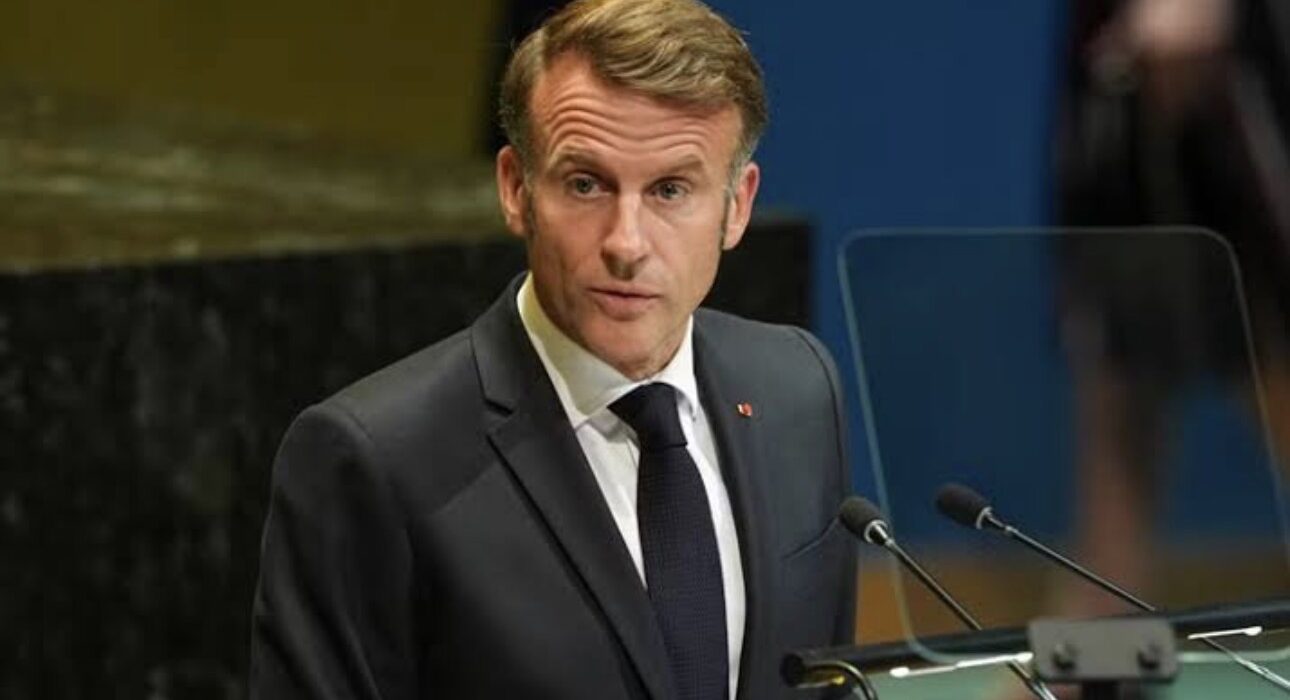Macron Formally Recognizes Palestinian State at UN Summit

In a major diplomatic shift, French President, Emmanuel Macron on Monday formally recognized the State of Palestine during a high-level United Nations summit in New York, marking one of the most consequential policy moves of his presidency.
The announcement, delivered at a session co-hosted by France and Saudi Arabia on the sidelines of the UN General Assembly, was framed as a push to revive the long-stalled two-state solution.
Macron told delegates that France could not allow the idea of two nations — Israel and Palestine — living side by side in peace to “fade into oblivion.”
“France today recognises a State of Palestine,” Macron declared, insisting that the move did not undermine Israel’s right to security.
He stressed that recognition was contingent on conditions including reforms within the Palestinian Authority, a ceasefire in Gaza, and the release of hostages held by Hamas.
The decision places France among a growing list of Western nations — including the UK, Canada, Portugal, and Australia — that have extended formal recognition to Palestine in recent weeks.
Until now, recognition had come mainly from developing nations and much of the Global South.
Reactions were swift and divided. The Palestinian Authority hailed France’s step as “historic and courageous,” calling it a breakthrough that validated decades of Palestinian struggle for statehood. By contrast, Israel denounced the move, warning it would embolden Hamas and undermine peace talks.
The United States also expressed disapproval, saying recognition risked complicating delicate negotiations over a Gaza ceasefire and the fate of hostages.
Analysts note that the recognition is largely symbolic for now, as it does not alter realities on the ground:
Israel still controls much of the territory in question, while the Palestinian Authority lacks full governance capacity, especially in Gaza. But coming from a heavyweight like France — a permanent member of the UN Security Council — the move significantly boosts the Palestinians’ diplomatic standing.
French officials have defended the decision as both a moral and strategic necessity, warning that the Gaza war has dangerously eroded prospects for peace.
“Recognition of the legitimate rights of Palestinians takes nothing away from the rights of Israel,” Macron insisted, adding that the move was also a message against rising antisemitism and Islamophobia.
The recognition is expected to dominate this year’s UN General Assembly debates, with Arab states applauding the shift and Western allies split over whether Macron’s gamble will reinvigorate peace talks or deepen divisions.
For Palestinians, it marks a new chapter in their decades-long campaign for international legitimacy — one written, for the first time, with the signature of France.









